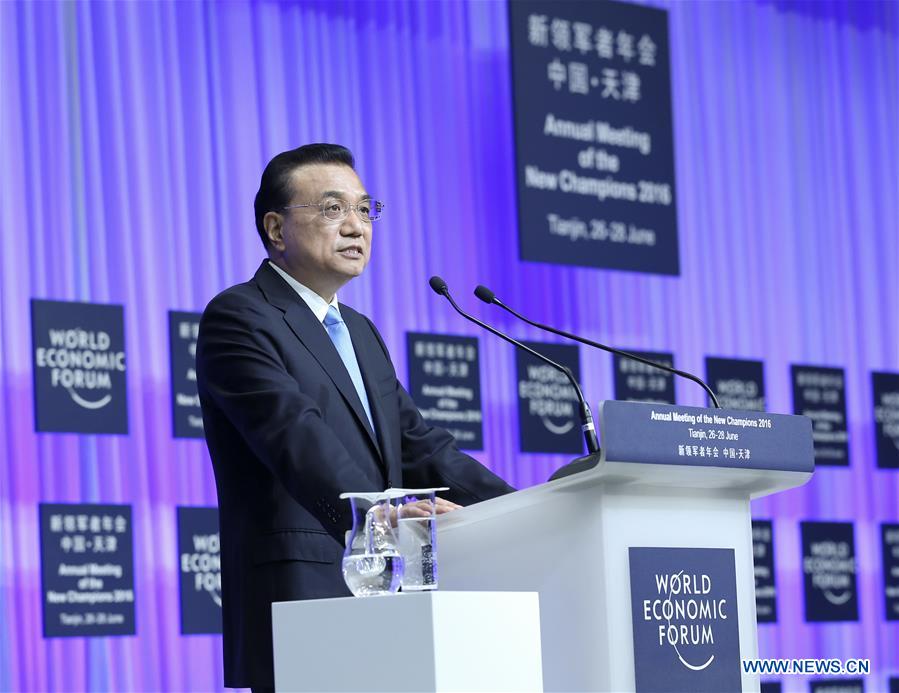Full coverage: Summer Davos Forum 2016
Full coverage: China’s Leaders
TIANJIN, June 27 (Xinhua) -- Premier Li Keqiang denied the possibility of the Chinese economy suffering a hard landing as he addressed the Annual Meeting of the New Champions 2016, or Summer Davos, in Tianjin on Monday.

TIANJIN, June 27, 2016 (Xinhua) -- Chinese Premier Li Keqiang addresses the opening ceremony of the Annual Meeting of the New Champions 2016, or Summer Davos Forum, in Tianjin, north China, June 27, 2016. (Xinhua/Pang Xinglei)
"We can deliver the major targets of economic and social development set for 2016," he said at the opening ceremony of the forum for business people and leaders of rapidly emerging economies.
The Chinese economy continued to grow stably in the second quarter of the year, following a 6.7-percent expansion in the first three months, said Li.
New economic drivers are developing rapidly and major economic indicators are stabilizing or improving, according to the premier.
In the first five months, 5.77 million urban jobs were created. The unemployment rate in 31 major cities was 5.02 percent in May.
"We are optimistic about the economy now and in the future," said Li.
China's economic fundamentals are unchanged, and the government will keep macro policies constant and stable, said Li.
"Generally speaking, the economic structure is optimizing. The quality of growth is improving. Momentum is gathering," he claimed.
But the premier cited weak external demand, sluggish private and manufacturing investment, financial risks and overcapacity as big problems.
He vowed to keep pushing for supply-side structural reform with a focus on reducing capacity, destocking, deleveraging, and reducing the costs of doing business.
China is trying to wean itself off over-reliance on natural resources and turn to human resources and innovation to keep the economy growing at a medium-high speed.
The country will continue to promote mass entrepreneurship and the "Internet Plus" initiative to foster new growth engines. About 40,000 new market entities have been set up every day lately, according to Li.
The government will also continue to cut excess capacity in steel and coal sectors in "a market-oriented and lawful" manner, he vowed.
According to the premier, governments and enterprises will take measures to reemploy steel workers and coal miners made redundant.
"Overcapacity is a global challenge and China stands ready to be a responsible country with all these proactive measures," he said.
The government is reforming its own services to cut red tape and regulate emerging sectors or business models.
Li also promised that China will make adjustments in fiscal, financial and investment areas to support the real economy, deepen reforms in state-owned enterprises and give private firms more access to the market.















